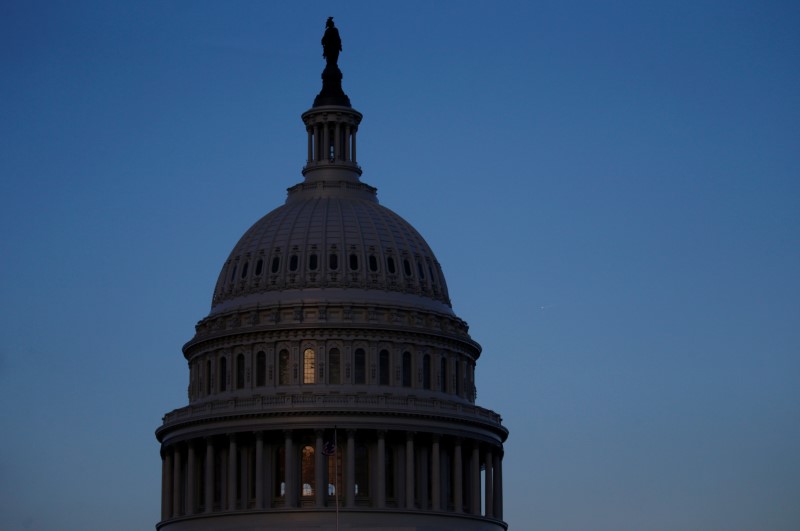By Ginger Gibson and Grant Smith
WASHINGTON/NEW YORK (Reuters) - Democrats have a $10.5 million fundraising advantage over Republicans in the 25 most competitive races for seats the U.S. House of Representatives ahead of the November elections, according to an analysis by Reuters.
Party leaders, encouraged by recent victories in special elections in Pennsylvania and Alabama, hope it will be enough to help them flip 24 seats needed in November to wrestle control of the chamber from Republicans.
The fundraising gap could reflect opposition to President Donald Trump and growing enthusiasm among rank-and-file Democrats toward the mid-term elections. The added cash will help Democrats pour more money into advertising and voter outreach efforts.
Still, the analysis of federal campaign finance disclosures also shows that the average Republican candidate has raised more funds than the average Democrat. Because most of the seats are either open or already held by a Republican, the funds raised by Democrats are spread among more candidates vying for their party's nomination. In the races covered by the analysis, there are 127 Democrats and 65 Republicans.
Republicans are hopeful the primary season will force Democrats to spend their advantage.
“It’s exciting to watch Democratic candidates spend what money they do have tearing each other apart in primaries over issues like single-payer health care and abolishing ICE," said Jesse Hunt, a spokesman for National Republican Campaign Committee (NRCC), which helps candidates in their party getting elected to the House.
The Democratic Congressional Campaign Committee (DCCC), on the other hand, does not see a risk in the primary season.
“Democratic candidates are out-working and out-organizing vulnerable Republican incumbents across the largest House battlefield in over a decade. The reality is that a lot of Republican incumbents haven’t faced a competitive challenge in a very long time and have proven unable to locate those old campaign muscles," said DCCC spokesman Tyler Law.
A handful of candidates failed to file campaign disclosures, which were due to the Federal Elections Commission by midnight on Monday morning. And additional candidates could still enter the race in a handful of states.
All 435 members of the U.S. House will stand for re-election in November. Recent polls have found conflicting evidence of whether voters are gearing up to produce a wave that would favor Democrats. A Reuters/Ipsos poll found older, white voters abandoning the Republican Party. And a Washington Post/ABC News poll released Monday found the gap among all voters between Republicans and Democrats narrowing.
By the end of March, Democrats in the most competitive races brought in $44.7 million and had $40.5 million in cash left over. Republicans from the same districts reported raising $34.2 million with $27.9 million in cash.
The fundraising amounted to $351,740 per Democrat and $525,506 per Republican. Historically, some donors will opt to withhold donations until after the primary, meaning there could be more pent-up cash that Democrats could access later in the year.
The totals represent 25 of the most competitive congressional races across the country, including 23 currently held by Republicans, according to a Reuters review of the ratings of three independent political analysis groups: Cook Political Report, Inside Elections and the University of Virginia’s Center for Politics.
Dozens of factors can lead to making a race more or less competitive, including polling, fundraising and the strength of an opponent.
